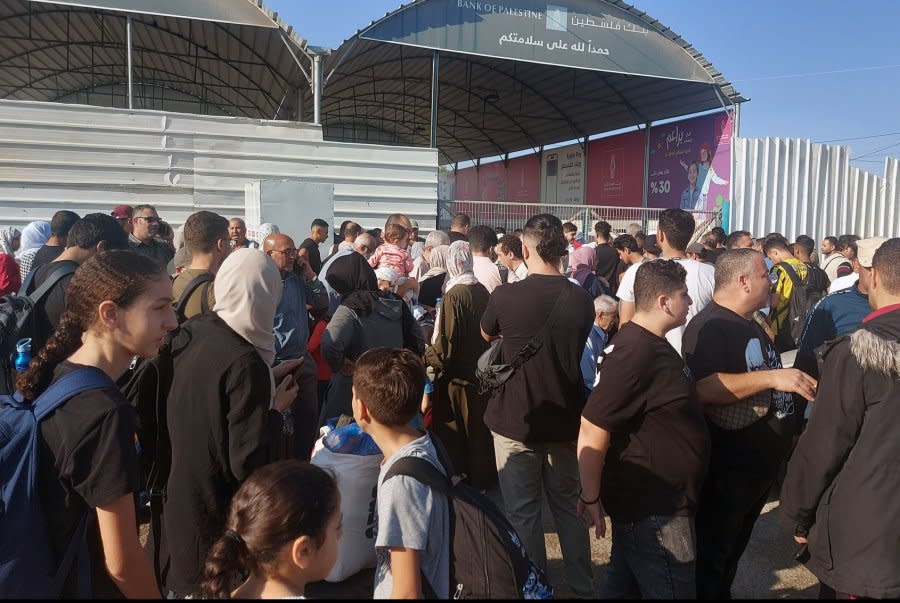Palestinian refugees remain cut off from aid piled up at Gaza border crossing with Egypt

Oct. 17 (UPI) -- As many as 2 million Palestinian refugees remained cut off from humanitarian aid in Egypt Tuesday as a blockade on the only viable passage out of Gaza remained in place amid Israel's ongoing war with Hamas.
The situation at the Rafah crossing was growing increasingly desperate as massive civilian crowds were still under threat of falling bombs while unable to access convoys of water, food, hygiene items, blankets, tents, and medical supplies sitting unused in neighboring Egypt, according the United Nations.
The border crossing with Egypt has been shuttered since Oct. 7, when Hamas launched a barrage of coordinated attacks on Israel, whose military responded in an all-out siege on the Gaza Strip.
After a week of fighting, tons of essential goods poured into Egypt's El Arish International Airport over the weekend from Jordan, Turkey, and the United Arab Emirates, before being shipped to Gaza aboard hundreds of big rigs.
The World Health Organization sent medical supplies from a hub in Dubai to help those injured in the crossfire, as well as those suffering from trauma or persistent health conditions like heart disease, hypertension, and diabetes.
The U.N. World Food Program was also delivering food and water to Gaza, which had no fuel, electricity and limited access to clean drinking water as Israel's bombing campaign continued to pummel major population centers, reducing them to rubble.
Previously, U.N. Secretary-General Antonio Guterres called on Israel to open a safe aid delivery corridor as Gaza was running out of basic supplies to support life.
On Tuesday, Tamara Alrifai, who serves as the spokesperson for the U.N. Relief and Works Agency for Palestine Refugees, urged Israel to reopen the border crossing to allow the crowds to reach the desperately needed aid.
In one episode, about 6,000 civilian refugees were huddled in a warehouse in southern Gaza with little if anything to eat or drink, she told CNBC.
"Over the last two days, reports of about 1 million people -- that is a sea of people -- going south moved using whatever means they could and given the lack of fuel in Gaza a lot of them moved by feet," Alrifai said. "So, the images we have been receiving from my colleagues are harrowing images of people on their feet walking under airstrikes and air bombings to try to find shelter in a safer area."
Over the weekend, U.S. Secretary of State Antony Blinken announced the Rafah border crossing would be reopened as Israel initiated a ground invasion into the Palestinian enclave, where more than 2 million civilians were trapped in a worsening humanitarian crisis.
However, discussions to resolve the matter broke down Monday after Egypt's leadership refused to open their side of the crossing unless Israel let the waiting supplies into Gaza.
Meanwhile, Israeli Prime Minister Benjamin Netanyahu faced pressure from Washington to allow humanitarian aid to come into Gaza as water and other supplies were starting to run out.
But Netanyahu's office said Monday that Israel had received no assurances from Hamas on a cease-fire agreement that would allow the aid into Gaza and the refugees to seek safer ground in Egypt.
Meanwhile, Egypt's Foreign Minister Sameh Shoukry blamed Israel for delaying the move and putting innocent lives at risk.

